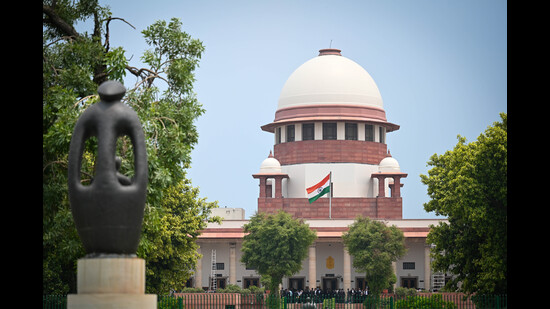SC summons MP secretary over poor quality, delayed appeals
The Supreme Court summoned Madhya Pradesh's law secretary over delays in state appeals, seeking accountability for questionable litigation practices.
The Supreme Court has summoned the law secretary of Madhya Pradesh, expressing concern over the persistent delays and questionable merit of appeals filed by the state government before the top court.

A bench of justices JB Pardiwala and R Mahadevan, while hearing a special leave petition (SLP) filed by the state, noted that it was not merely the delay in filing appeals but the decision-making process behind these petitions that was troubling the court.
“We admire the courage with which the State of Madhya Pradesh has been filing special leave petitions in this Court over a period of time with delay of 300/400 days,” the bench underscored in its January 31 order, taking a critical view of the state’s litigation practices.
The case at hand involved a second appeal under Section 100 of the Civil Procedure Code, 1908, which the state government had filed before the Madhya Pradesh high court with a delay of 656 days. The high court had in April 2024 rejected the plea to condone this “gross delay”, as the state was unable to provide any “sufficient cause” for it. The Madhya Pradesh government then chose to challenge the high court’s refusal to condone the delay by filing an SLP before the Supreme Court –– again, with an additional 177 days of delay.
Noting that the petition could have been dismissed “solely on the ground of delay”, the bench, however, decided to delve deeper into who was responsible for recommending such appeals.
“We do not intend to do this as we have something else in our mind,” the order stated.
The Supreme Court has now directed the law secretary of Madhya Pradesh to appear before it on February 14, along with the original files containing the decision to challenge the high court’s order.
“We would like to know who is that authority who took the decision that the order passed by the high court is worth challenging before this court,” noted the bench, making it clear that it sought accountability for the state’s litigation strategy.
The order marks a strong stance by the Supreme Court against reckless litigation by state governments, particularly when appeals are filed with inordinate delays and without substantial grounds.
In November 2024, the same bench had imposed a penalty of ₹1 lakh on Madhya Pradesh after the state sat on a matter for 1778 days before preferring a second appeal before the high court even though government lands were involved. “We have deemed it necessary to impose costs to send a stern message that the States must not misuse the Supreme Court’s time by filing appeals against the well-reasoned and conscious decisions rendered by the high courts without proper grounds,” the November 29 judgment stated.
This judgment also directed the state to streamline the legal machinery and fix the responsibility on the officers concerned and penalise them for delays and lapses that incur loss to the public exchequer. “Such direction will have to be followed by all the states scrupulously,” it added.
The court’s decision to now scrutinise the decision-making process behind such appeals could have wider implications on how states approach litigation before the apex court.






